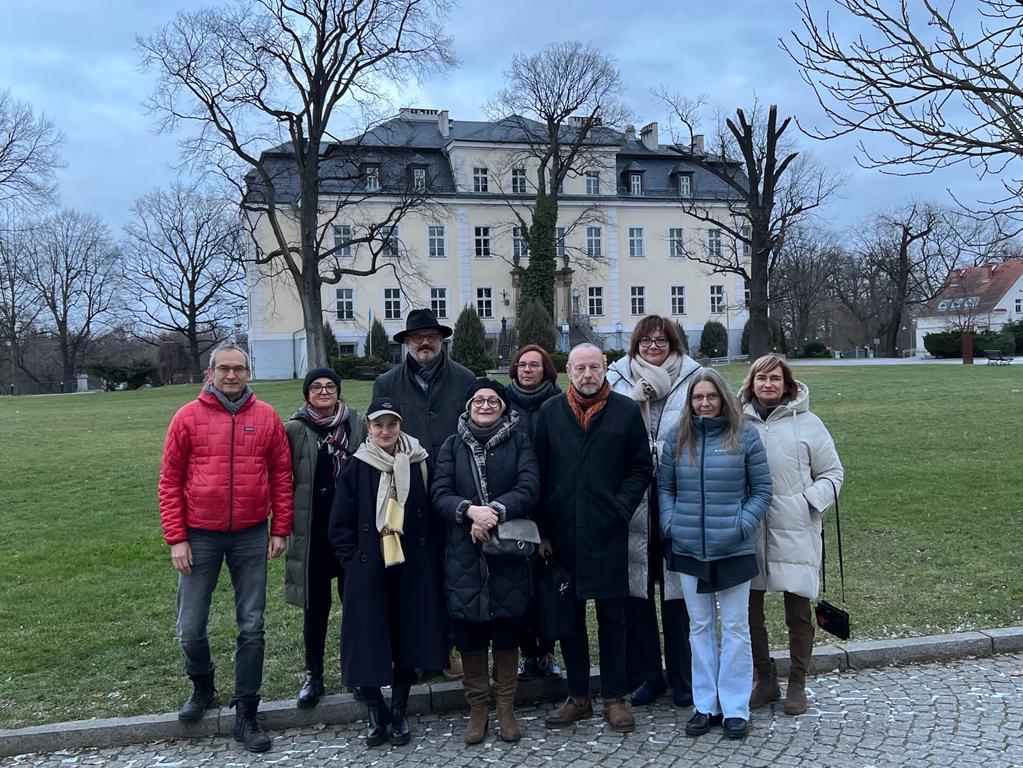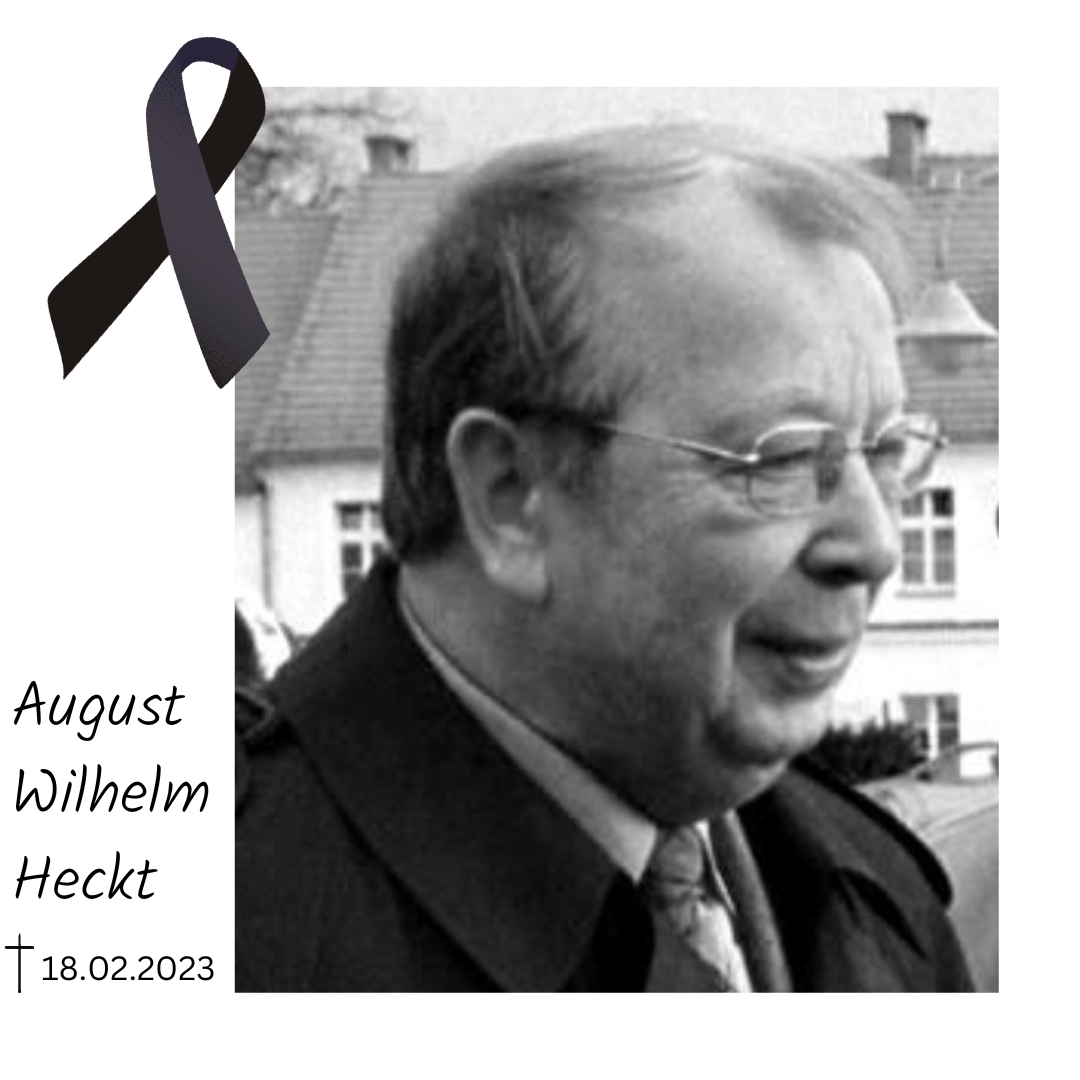 On 4-5 February 2023, the first meeting of the Artistic Council of the Konrad and Paweł Jarodzki Artistic Residency Programme took place in Krzyżowa.
On 4-5 February 2023, the first meeting of the Artistic Council of the Konrad and Paweł Jarodzki Artistic Residency Programme took place in Krzyżowa.
Artistic Residency is a new, long-term project carried out by the Krzyzowa Foundation for Mutual Understanding in Europe together with 66P Subjective Cultural Institution from Wrocław. The aim of the programme is to run an international residency for socially engaged artists in Krzyzowa in the spirit of Konrad and Paweł Jarodzki's values. The programme is intended to serve international artistic exchange and promote a culture of dialogue and understanding. During the meeting, the Council not only worked out the details of the new programme, but also became acquainted with the historical heritage and activities of the Krzyzowa Foundation.
The Konrad and Paweł Jarodzki Artistic Residency Programme was established thanks to a donation from Renata and Rafał Jarodzki and Dorota Jarodzka-Śródka.
Read more: A new artistic programme in Krzyżowa starts!

We are deeply saddened to hear of the death of August Wilhelm (AuWi) Heckt (†18.02.2023), co-founder of the Krzyżowa Foundation for Mutual Understanding in Europe, former member of the Foundation Council and in recent years member of the Honorary Council, who together with his wife Maria formed the backbone of the Dortmund-Wrocław relief effort in the 1970s and 1980s.
To his wife, family and friends we are sending condolences at this tragic time.
Read more: (†) August Wilhelm (AuWi) Heckt
.png) This text is a written version of the opening lecture of the event 'Responsibility, Community, Europe. The legacy of the Kreisau Circle today". It took place on 2 September 2022 in Haus am Dom in Frankfurt am Main in cooperation with the Krzyżowa Foundation for Mutual Understanding in Europe, the German Institute for Polish Affairs, Haus am Dom and the Freya von Moltke Foundation.
This text is a written version of the opening lecture of the event 'Responsibility, Community, Europe. The legacy of the Kreisau Circle today". It took place on 2 September 2022 in Haus am Dom in Frankfurt am Main in cooperation with the Krzyżowa Foundation for Mutual Understanding in Europe, the German Institute for Polish Affairs, Haus am Dom and the Freya von Moltke Foundation.
The lecture was given in german.
"The geopolitical holidays are over," the Polish diplomat Marek Prawda recently pointed out. The era of relative prosperity and security that has accompanied us in recent decades is coming to an end. New times are coming with great challenges. The legacy of the Kreisau Circle can help us to successfully stand up to them.
DSc Robert Żurek
PART I
What distinguished the Kreisau Circle
At Whitsun 1942, a strange group of people came together in Krzyżowa in Lower Silesia. People who could hardly have been more different in terms of their professions, their social status, their world views or their political sympathies. And it was no accident, it was deliberate, that was the Kreisau Circle.
This meeting was followed by two more - in autumn 1942 and then at Whitsun 1943. Ten to eleven people took part in each of these three meetings. These were not all members of the Kreisau Circle, but so many were allowed to meet under the conditions of conspiracy without being immediately discovered by the political police.
Read more: Lessons of the Kreisau Circle

After 13 years, Nina Lüders has left the Kreisau-Initiative e.V., our sister organisation in Berlin, to begin a new phase in her professional life. In her role as Executive Director, she was the most significant contact person for the Krzyzowa Foundation over a long period of time and shaped the good partnership and growing cooperation between our organisations. With her expertise and her network, she brought many important impulses to Krzyzowa. Beyond her professional qualities, we have also perceived her as an extraordinary person who shapes communication and work processes with a great deal of empathy and understanding. We will therefore miss Nina Lüders in many ways. At the same time, we wish her all the best in her new stage of professional life and thank her most sincerely for her commitment, heart and soul and the memories she left behind. We hope that Krzyżowa will always stay in your heart, Nina!
We would like to recommend the farewell article written about Nina Lüders by Urlike Kind, a board member of the Kreisau Initiative e.V. association.
Robert Żurek and Dorota Krajdocha
Read more: Farewell to Nina Lüders




.png)



